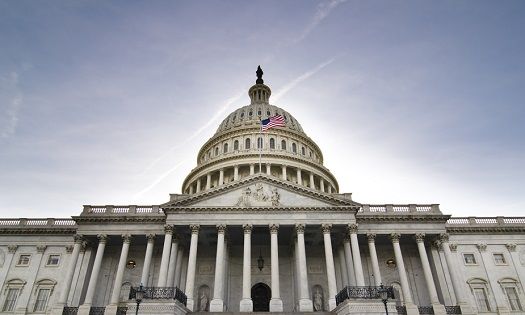Article
Senate Republican Leaders Propose Revised Healthcare Bill
Author(s):
The revisions to the Better Care Reconciliation Act 2017 come after majority party dissent and withdrawal in late June.

The US Senate Republican leaders presented a revised draft of the proposed “Better Care Reconciliation Act (BRCA) Thursday, 3 weeks to the day the original bill was presented in effort to supplant the Patient Protection Affordable Care Act (ACA).
The revision comes after a failure to procure majority favor for the BRCA in June, and serves partly as means to meet vocally dissenting Republican Senators on issues of concern.
What the revised BRCA does not deviate from is the Republican leaders’ intent to make major cuts to Medicaid program funding, still set to begin in 2025 if the bill passes. In the revised bill, the ACA — informally known as “Obamacare” — Medicaid expansion funding would still end in 2024.
The elimination of many ACA taxes are still proposed in the revision. It similarly carried over resolution to eliminate employer mandates to provide affordable coverage for employees, as well as cost—sharing subsidies to aid ACA customers’ deductibles and copayments by 2020.
Planned Parenthood funding under Medicaid would face a year-long freeze under the proposal.
Notable changes to the revised bill include a $45 billion fund towards opioid addiction aid, narrow health plan coverage with cheaper premium options for individual market buyers, and an added $70 billion in total state funding for health care costs and implementation under the changes from BRCA.
When introducing the revised bill Thursday, Senate Majority Leader Mitch McConnell (R-KY) said the updated draft intends to “stabilize and reform the collapsing insurance market that has left too many with no options.”
“For those stuck with Obamacare insurance they don’t want or can’t afford, we don’t think they should be forced to buy it any longer,” McConnell said.
McConnell also addressed the proposed reform from federal to state-based funding for Medicaid programs, which in turn would require many states to turn to block grant funding to provide adequate coverage for its residents.
“It’s an idea that could significantly improve healthcare in states across our country,” McConnell said.
Senate Minority Leader Chuck Schumer (D-NY) called the revisions “every bit as draconian” as its preceding draft Thursday, lamenting its potential cuts to women’s health coverages and raised costs for senior citizens.
Schumer also spoke against the proposed tax break for those who open health savings accounts, noting it will only help wealthy citizens who “sometimes use these accounts as tax shelters.”
“For Americans who are struggling to pay for insurance coverage, for the average family that sits down on a Friday evening and says, “How are we going to pay our existing bills?”, for middle class families who struggle to make ends meet, a tax break on health savings accounts will not help,” Schumer said.
Before reaching the senate floor for vote, the bill will be analyzed by the Congressional Budget Office (CBO) for its cost and effect on citizens’ lost insurance, which is projected to be released on Monday.
The CBO analysis of the BRCA’s 1st draft showed the bill would have resulted in 22 million more people without health insurance by 2026, while reducing projected Medicaid spending by $772 million in that same span.
Related Coverage
Senate Majority Proposes the Better Care Reconciliation Act
Reborn American Health Care Act Narrowly Passes House
Bill to Partially Repeal Affordable Care Act Moves to President's Desk Awaiting Likely Veto





